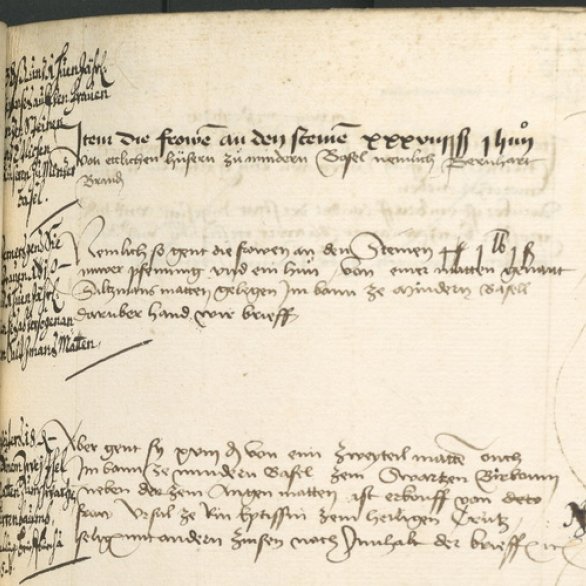Saturday, April 12, 2025, 2:30 p.m.
Museum Kleines Klingental, Small Refectory
Klingental was not only a monastery, but also extremely active economically. It documented its economic activities in the form of books, documents and notebooks. The monastery archive contains around 10,000 pages, dating from its foundation in the 13th century to the Reformation. Even after the closure of the monastery, the writings continued to be used, restructured, continued or supplemented in an administrative unit. Together we will take a closer look at some of these creative phases and ask about the associated contexts and functionalities of the administration. The focus is on the 15th century, when the monastery was still a female-run convent.
Lecture: Aline Vonwiller, doctoral student and member of the Economies of Space project at the Universities of Basel and Bern
Price: CHF 10.- / 7.-
Museum Kleines Klingental, Small Refectory
Klingental was not only a monastery, but also extremely active economically. It documented its economic activities in the form of books, documents and notebooks. The monastery archive contains around 10,000 pages, dating from its foundation in the 13th century to the Reformation. Even after the closure of the monastery, the writings continued to be used, restructured, continued or supplemented in an administrative unit. Together we will take a closer look at some of these creative phases and ask about the associated contexts and functionalities of the administration. The focus is on the 15th century, when the monastery was still a female-run convent.
Lecture: Aline Vonwiller, doctoral student and member of the Economies of Space project at the Universities of Basel and Bern
Price: CHF 10.- / 7.-
This text was translated by an AI.


